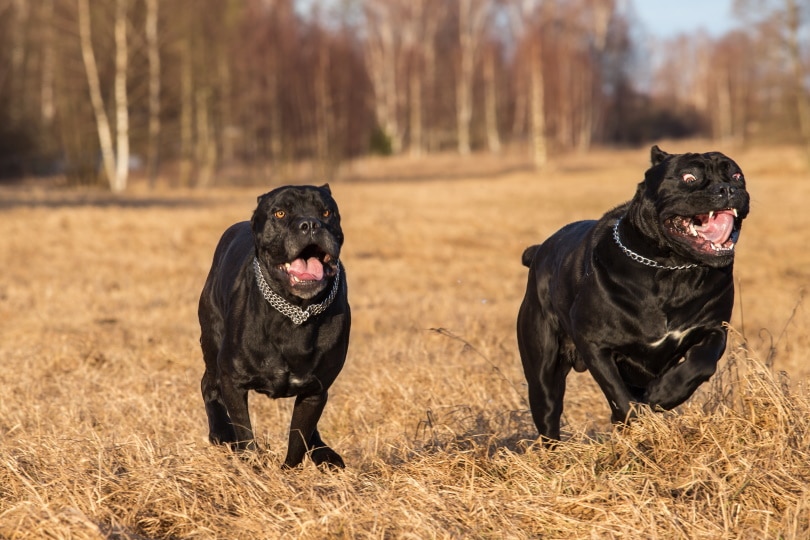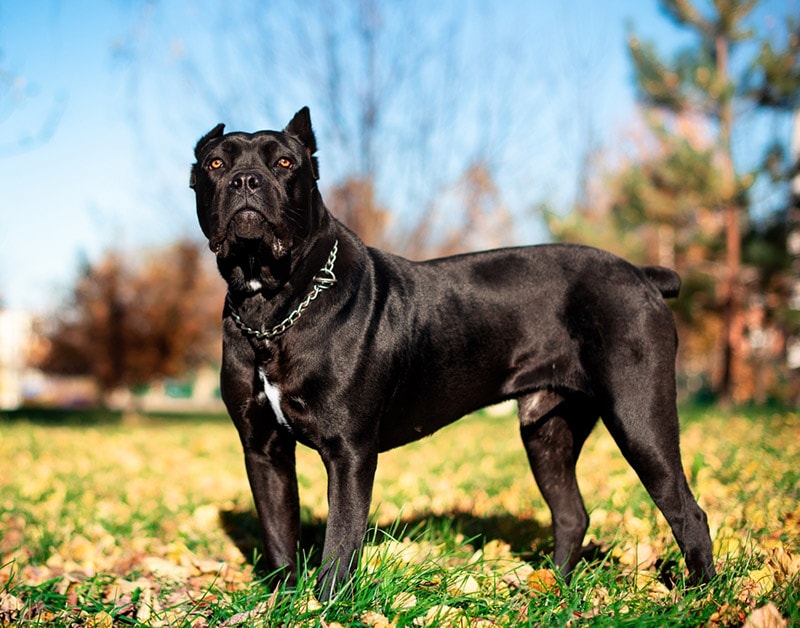When discussing large and powerful dog breeds, one topic that often arises is the behavior of Cane Corsos around unfamiliar people. Some owners and enthusiasts notice that these dogs can display protective or suspicious tendencies toward those they do not know. To understand this better, it is essential to explore the factors that contribute to Cane Corsos aggressive behavior. Cane Corso Dog, many owners and trainers emphasize that while the breed has natural guarding instincts, there are specific reasons why Cane Corsos may react more aggressively to strangers than other dogs.
Understanding the Cane Corso’s Protective Nature
The Cane Corso is a guardian breed that has been bred for centuries to protect property, livestock, and families. Their history as protectors shapes their natural temperament, making them alert and cautious around unfamiliar individuals. This protective nature is not inherently negative, but without proper training and socialization, it can manifest as hostility or aggression. The breed’s instinctive wariness toward strangers often stems from its role as a defender rather than a companion bred solely for affection.

Genetics and Instinctive Behavior
Cane Corsos inherit strong guarding instincts through their genetic background. Breeders originally developed these dogs to be territorial and to react quickly to potential threats. These instincts remain deeply ingrained, influencing how they behave around strangers. While other breeds may welcome new people with ease, a Cane Corso is more likely to evaluate the situation carefully before deciding if the person is trustworthy. Genetics, therefore, create a foundation for their protective behavior, which can sometimes be misinterpreted as aggression.
The Role of Early Socialization
Socialization plays one of the most significant roles in shaping a Cane Corso’s response to strangers. Puppies that are regularly exposed to different people, environments, and situations grow into more confident adults who are less likely to show unnecessary aggression. Conversely, Cane Corsos that lack adequate socialization during their formative months often become overly cautious or reactive toward strangers. Owners must commit to structured socialization from an early age to prevent fear-based responses or defensive aggression later in life.
Training and Behavioral Guidance
Training is essential for any Cane Corso, not only to establish good manners but also to manage their natural protective instincts. Without consistent leadership, these dogs may assume they are responsible for deciding who is a threat, which often results in heightened aggression toward strangers. Positive reinforcement, obedience training, and clear boundaries help them understand acceptable behavior. When Cane Corsos are well-trained, they can balance their guarding instincts with controlled responses, making them reliable family protectors without unnecessary hostility.
Influence of Environment and Owner Behavior
The environment in which a Cane Corso is raised significantly affects its temperament. Dogs raised in chaotic or stressful households are more likely to develop defensive behaviors. Likewise, owners who unintentionally reinforce suspicious reactions to strangers may create an overly aggressive dog. Calm, confident, and consistent leadership reassures the Cane Corso, teaching it to rely on guidance rather than instinct alone. Owners who understand body language and maintain control help prevent aggressive escalations in unfamiliar situations.
Common Triggers That Lead to Aggression
Cane Corsos may not always act aggressively without reason. Certain triggers can intensify their reactions to strangers, such as:
Sudden movements or loud noises that create a sense of threat.
Strangers approaching their territory or family members.
Lack of familiarity with new people due to insufficient socialization.
Misinterpretation of stranger behavior as suspicious or dangerous.
Stressful or overwhelming environments that heighten protective instincts.
Each of these factors contributes to how a Cane Corso responds in real-world situations. Recognizing triggers allows owners to anticipate and manage their dog’s reactions more effectively.
The Importance of Responsible Ownership
Cane Corsos require owners who are experienced, patient, and committed to consistent training. Irresponsible ownership often contributes to the perception of this breed as overly aggressive. Neglecting training, ignoring the need for socialization, or encouraging aggressive behavior can create significant risks. A responsible owner understands the breed’s temperament, invests time in positive reinforcement, and ensures the dog has a structured routine. With the right guidance, Cane Corsos can be both protective and approachable without excessive hostility.
Health-Related Factors and Aggression
In some cases, aggression in Cane Corsos may be linked to health conditions. Pain, hormonal imbalances, or neurological issues can alter a dog’s behavior, making it more irritable or defensive. Regular veterinary checkups are essential to rule out underlying medical problems that could contribute to aggression. A healthy Cane Corso is more likely to remain stable, balanced, and manageable in different situations.
Misconceptions About Aggression in Cane Corsos
Many people assume that Cane Corsos are naturally aggressive and unsafe, but this is a misconception. While the breed is naturally protective, aggression is often a result of poor socialization, lack of training, or inadequate leadership. Cane Corsos that receive proper care and guidance are known for being affectionate, loyal, and gentle with their families. The reputation of the breed suffers when individual cases of neglect or mishandling lead to incidents of aggression.
Managing Stranger Interactions
Owners can reduce the likelihood of aggressive responses by gradually introducing their Cane Corso to new people. Controlled exposure allows the dog to learn that strangers are not necessarily threats. Using commands, rewarding calm behavior, and maintaining a relaxed environment helps reinforce positive interactions. Owners should always supervise initial introductions to ensure safety and build trust. Over time, Cane Corsos can learn to differentiate between genuine threats and harmless encounters.

Conclusion
Cane Corsos aggressive tendencies toward strangers often stem from their protective instincts, genetic background, and environmental influences. While these dogs are naturally cautious, responsible ownership, early socialization, and consistent training can transform these instincts into balanced behavior. Cane Corso Dog emphasizes that this breed is not inherently dangerous but requires knowledgeable guidance to thrive. With the right approach, Cane Corsos can become loyal protectors and affectionate companions, showcasing their true nature as dependable family guardians.
FAQs
Are Cane Corsos dangerous to strangers?
Cane Corsos are not inherently dangerous, but they can act aggressively if not properly trained and socialized. Their natural guarding instincts make them cautious around strangers.
Can early training reduce aggression in Cane Corsos?
Yes, early and consistent training helps Cane Corsos understand acceptable behavior and prevents unnecessary aggression toward strangers. Socialization from puppyhood is especially important.
Do Cane Corsos make good family pets despite their protective nature?
With responsible ownership, Cane Corsos are affectionate and loyal family dogs. Their protective instincts make them excellent guardians while still being gentle with loved ones.
What should I do if my Cane Corso shows aggression toward strangers?
Owners should remain calm, use commands to redirect attention, and seek professional training guidance if needed. Avoid reinforcing aggressive behavior through inconsistent responses.
Can health issues cause aggression in Cane Corsos?
Yes, medical conditions such as pain, hormonal changes, or neurological problems can influence aggression. Regular veterinary care ensures that health-related issues are managed effectively.







